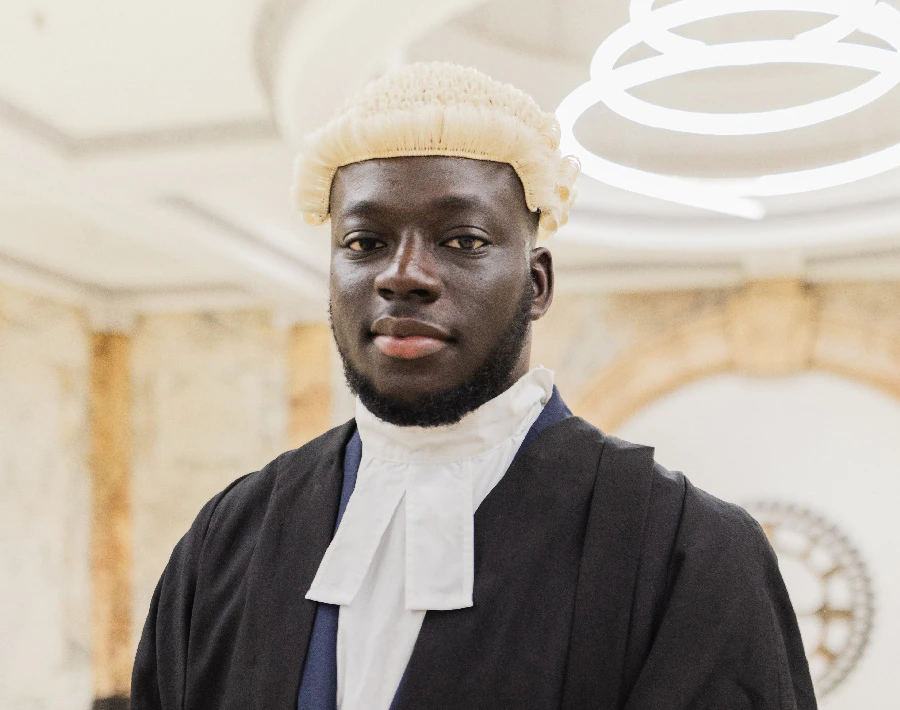How to become a barrister
Barristers are highly qualified specialist legal professionals providing expert legal advice and representing clients in courts and tribunals. The path to the Bar demands commitment, rigorous training, and strategic career planning. Understanding the process is your first step toward this prestigious profession.
This guide outlines the key stages, timelines, and qualifications needed to become a barrister, helping you navigate your journey effectively.

How long does it take to become a Barrister?
Timelines vary based on your qualifications and chosen route. Generally, it takes between five to six years.
The law degree route
5 years
3 years to complete your LLB
1 year for the Bar Training Course (BTC)
1 year of pupillage
The non-law degree route
Approximately 6 years
A minimum of three years completing your non-law degree
1 year to complete a law conversion course
1 year for the Bar Training Course (BTC)
1 year of pupillage

Steps and qualifications to becoming a Barrister
The journey to becoming a qualified barrister involves a series of clear steps and the attainment of specific qualifications. These are intertwined, as each step often requires a corresponding qualification. Here’s a breakdown of what you need to achieve:
First, you'll need a foundational legal education. This means either:
Getting a law degree in England and Wales (typically a 3-year LLB) with at least a 2:2 grade.
Completing a non-law degree (minimum 3 years) followed by a validated law conversion course (like the PGDL, usually 1 year).
This fulfils the academic element of your qualifications.
Work experience
Practical experience is essential for securing pupillage and standing out in a competitive field.
Mini-pupillage
This is a highly regarded form of working experience that gives you a great deal of insight into what being a barrister is really like. Usually lasting between one to five days, a mini-pupillage is a practical work experience and shadowing opportunity within a set of chambers. Not only will it look great on your CV, but you’ll get a genuine insight into what life at the Bar is like.
Marshalling
Judge marshalling involves sitting in court with a judge for up to a week and gives students a great deal of insight into the English legal system. The week you spend shadowing a judge will allow you to get invaluable firsthand experience.
Hear experienced barristers present their cases, arguments or applications to the judge, understand the daily practices of a courtroom and get an in-depth understanding of the kind of career you’re working so hard for.
Getting a judge marshalling placement can be done in a couple of different ways. You could apply directly to the Inns of Court or you could contact your local Crown or County Court to find out if there are any opportunities to shadow a judge in your local area.
Moot court
Getting involved in moot societies within your university is a great way to gain the hands-on experience you’ll need to become a top-notch barrister. Mooting involves participating in a mock appeal trial and will help you sharpen skills like identifying and understanding legal issues, structuring legal arguments and presenting those arguments to a court.
Joining your university mooting team allows you to learn and grow as a budding barrister and will also showcase your enthusiasm for the law and advocacy to future employers.

Types of Barristers
You completed your education and training and you are now a qualified barrister. Now you can start practicing and provide specialist legal advice to clients, as well as represent them in both courts and tribunals. What does that look like practically?
What law you’ll be working within and the types of clients you’ll be working for will depend on the area(s) of law you decide to specialise in. Your career journey will naturally evolve as you decide which areas of law you find most interesting. It is important to take active steps to foster and grow your expertise, experience and network in the areas of law you’d like to specialise in.
Here are some of the options that will be available to you:
Commercial law
Chancery law (estates and trusts)
Common law (e.g., family, housing, and personal injury law)
Criminal law
Human Rights law
Entertainment law
Environmental law
Sports law
Working in chambers or as an in-house counsel
Regardless of your speciality, you will need to decide whether you want to work in ‘chambers' or as in-house counsel for a law firm, business or other organisation.
Summary
Becoming a barrister is a structured yet flexible process, offering opportunities to tailor your learning to your strengths and interests. Whether you opt for a law degree or a conversion course, gaining practical experience and building a network will be key to your success.
Dedication, resilience, and the right training will unlock your potential in this challenging yet rewarding profession.

Frequently asked questions
If you have an undergraduate degree that is unrelated to law, you can take a validated law conversion course (1 year) to begin your journey toward becoming a barrister.





